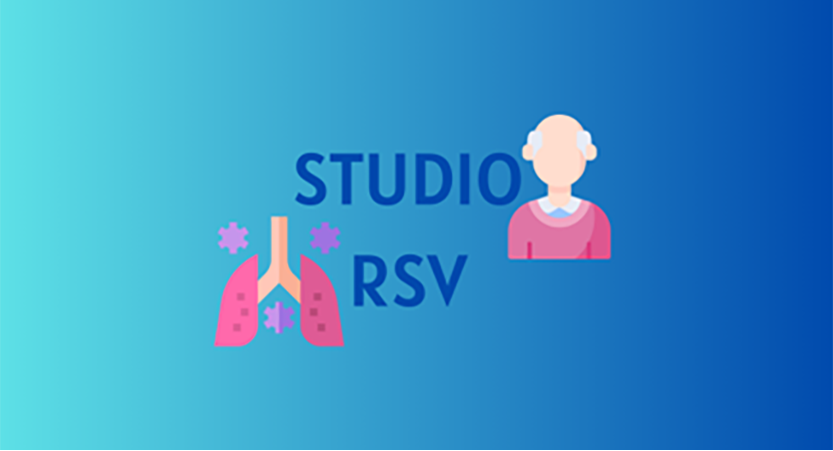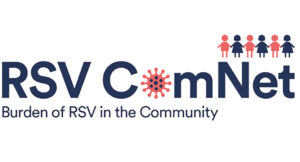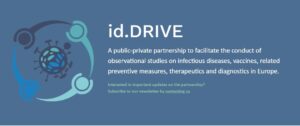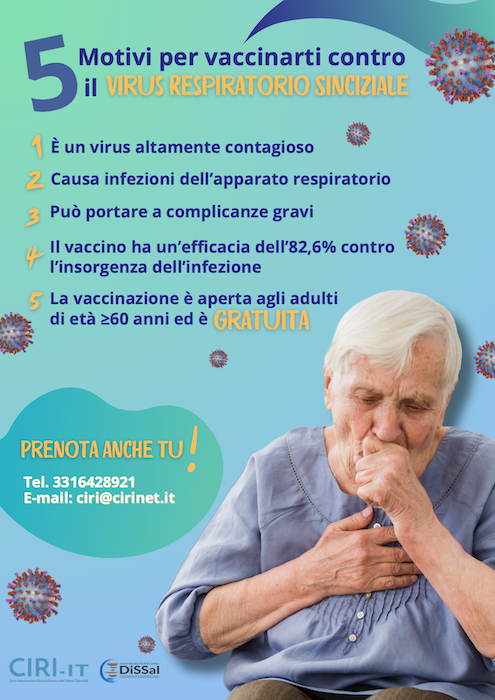Prospective study of the epidemiology and impact of respiratory syncytial virus (RSV) in the community, in adults aged 50 years and older.
Background:
In 2023, the European Commission approved the first two vaccines against respiratory syncytial virus (RSV).
The first approved vaccine is administered as a single-dose injection, co-administrable with the influenza vaccine, and is available for people over 60 years old.
The second vaccine is administered to both the over-60s and pregnant women, thus reducing the risk of RSV complications in children from birth to 6 months.
The Interuniversity Center for Influenza and Other Transmissible Infections Research (CIRI-IT) has initiated a prospective study with the aim of collecting information on the epidemiology and burden of RSV in the adult population aged ≥50 years to support future prevention policies.
Understanding the impact of RSV in community-dwelling adults, evaluating disease complications and associated healthcare costs, as well as the role of primary care in surveillance, is crucial for the prevention and control of RSV.
Study Aims: To assess the epidemiology and burden of RSV infection by collecting data on: attack rate, circulating subtypes and genotypes, symptoms duration, number of medical visits, medications and diagnostic tests used (laboratory and imaging), any complications and hospitalizations, and associated healthcare costs.
Study design: This is a prospective observational study conducted in the Metropolitan City of Genoa, in a primary care setting (outpatient clinics). The study is conducted in the winter seasons of 2023/24 and 2024/25.
On Day 0, if a general practitioner identifies symptomatology compatible with ARI (acute respiratory infection) or ILI (influenza-like illness), the patient is invited to participate. After providing informed consent, demographic and relevant medical history data are collected, and a nasopharyngeal swab is performed.
Samples testing positive for RSV are further analyzed in the study center’s laboratory to check for the presence of other respiratory pathogens.
On day 14, only subjects whose swabs tested positive for RSV are interviewed by telephone by a researcher foe a follow-up interview. If symptoms persist, a second follow-up is conducted on Day 30 using the same questionnaire. This will be the final contact with the participant.






